The following text was published by Marco Armiero in Environment and History 26 (3), pp. 451-454, in August 2020. Marco writes as acting president of the European Society for Environmental History (ESEH).
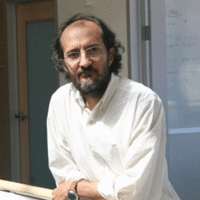 I hope I am not taking advantage of my position as the president of our society to write what might seem to be a quite personal text. Feminist practices and scholarship have taught me that the personal is never only personal but also political. In my own work I have always blended – someone less sympathetic would say mixed up – the personal, the scientific and the political, convinced, as I am, that we know the world not only through concepts and words but also through emotions and political passions. So, please bear with me in my perhaps inappropriate trespassing of those various realms.
I hope I am not taking advantage of my position as the president of our society to write what might seem to be a quite personal text. Feminist practices and scholarship have taught me that the personal is never only personal but also political. In my own work I have always blended – someone less sympathetic would say mixed up – the personal, the scientific and the political, convinced, as I am, that we know the world not only through concepts and words but also through emotions and political passions. So, please bear with me in my perhaps inappropriate trespassing of those various realms.
I would like to start by thanking all of you for your caring and warm support during these difficult times. As many of you may already know, I have been seriously ill with COVID-19. I was hospitalised for almost one month, spending ten days in the Intensive Care Unit. My condition was critical. During that time, and in my convalescence, I felt the privilege of being part of such a loving community; my family and I never felt alone. In this weird time of quarantine, colleagues and friends unleashed their creativity, overcoming geographical distance, my difficulties in speaking, and the physical distancing that the virus has imposed upon us. I happily run the risk of sounding cheesy but I wish to say that so much love was an amazing therapy – together with all the antiviral drugs and assisted breathing tools I received from the hospital. An academic society is not a group of friends, I realise this very well. But friendship, caring, and love can make a difference also in an academic society.
I have often campaigned for a scholarship that has the ambition to contribute to changing the world; perhaps this experience has taught me that we need to also change the ecologies of our relationships and feelings, starting from where and who we are.
Someone told me, trying to cheer me up, that it must have been my obsession with bottom-up research and empirical fieldwork that brought me into the eye of this epidemic: ‘It was not enough to read about COVID-19, you had to experience it first-hand.’ Jokes aside, I wonder what I have learned from that unplanned fieldwork. I should immediately confess that it is not easy for me to reflect on my experience because it is painful and very emotional. While writing these few lines, I feel inadequate for the task and I am struggling with myself over whether I have actually something to say that might be of general interest. Perhaps, this is lesson number one: being humble and not pretending always to have something smart to say.
When I arrived at the local hospital here in Sweden, nurses and doctors were sure I was coming from Italy, perhaps after a short visit to family or friends. Indeed, I am from Italy – if you have ever heard me speaking in English, you would have no doubt about it – but I was not coming from Italy. The need to track the contagion is often a relevant tool in the control of epidemics like the current one. In Italy, at least at the beginning of the pandemic, there was an attempt to follow the movement of the virus from one subject to another, aiming to stop the spread of the contagion. Even now, regional governments have the authority to declare a ‘red zone’ – that is, to lock down a specific area (a town, a neighbourhood or perhaps a hospital) where the virus is especially prevalent in order to end the contagion. I was also asking myself – at least when I was still conscious – how and where I got infected, revising in my mind the last two weeks of my existence. Isn’t this lesson number two?
I believe that, in general, people in the Global North do not think of their daily lives in those terms. We move in antiseptic, immunised environments, assuming that the world around us is not affecting our bodies, at least not with such immediate consequences. Even fewer of us would routinely see other human beings as biological threats. COVID-19 reminds us of what Stacy Alaimo has defined as trans-corporeality– that is, the interconnectedness of all beings with the material world in a dialectic relationship which transforms both of them simultaneously.
Although not employing this post-humanist lexicon, Alfred Crosby was arguing something very similar to trans-corporeality in his volume on the history of the Hispanic Flu: ‘The human body is a collocation of wonders, and none is more wondrous than the lungs. Here, quite literally, the line dividing the body from its environment is thinnest. The embodied experience of trans-corporeality in the dramatic form of COVID-19 calls for rethinking our understanding of the daily, familiar environment and its invisible/invisibilised relationships to the wider world. Several scholars have stressed that the present pandemic is the result of the expansion of intensive animal farming and the impingement of market-oriented agriculture on the wild. The organisation of production and consumption makes invisible the links connecting our daily environments with these wider networks of exploitation, but the body is the middle ground where those connections can become visible again, sometimes in a spectacular form as with COVID-19. The illusion that we live in a completely isolated and immunised environment is shattered.
However, while revealing the interconnections of the world and the impossibility of preserving indefinitely the safety of a small portion of it alongside the ruin of the rest, my experience of COVID-19 also goes almost in the opposite direction, and here we come to lesson number three. I got the virus in its aggressive form, as did many others around the world, but this does not make all of us equal. Rob Nixon once wrote that we might all be in the Anthropocene but in different ways. Similarly, Robert Bullard wrote that not all communities are created equal. COVID-19 is not the biological equaliser reducing our socio-ecological structure to the bare strength of our bodies. Race, class, gender and history matter in this pandemic. Many countries impoverished by colonial and neoliberal extractivism and exploitation have extremely weak health infrastructures; plus, as Mike Davis has noted, epidemics do not occur in a void, acting instead in combination with lack of food, inefficient sanitisation and poverty. Several studies are pointing at the unequal distribution of the virus, which seems to hit already vulnerable people more severely, including ethnic minorities, migrants and prison inmates. Obviously, this is not because of inappropriate behaviours – blaming the victims is always an easy toxic narrative – but rather because the virus is completely embodied into the current socio-ecological relationships which reproduce inequalities and privileges.
Something I have learned from COVID-19 is that I survived because I live in the ‘right’ part of the world, I belong to the ‘right’ class and I am not an illegal immigrant. Even now, going through my convalescence/quarantine, it is clear to me that my privilege makes my experience bearable. The appeal to social distancing and washing hands frequently are fantasies – perhaps insults – for most people who live in overcrowded environments, without services or are homeless. The very idea of home as a safe place denies the reality of domestic violence against women – and in fact several sources mention an increase of gender-based violence during the quarantine. And apart from violence, for many women the pandemic has brought even more care work. No, through COVID-19 I have not discovered how much we are all the same, but, on the contrary, the extent to which inequalities are inscribed in our lives and deaths.
But the truth is that I did not think of any of those issues when I was in the hospital, when I was intubated or when I was struggling to breathe. I was instead thinking of my family, I was afraid of not seeing them again; I was wondering whether I would see my daughter getting older, if I had been a good father and partner. I was afraid to die and I did not think about the many deadlines I was missing, the grants I did not get and the books I did not write.
Perhaps, this is lesson number 4, but this lesson might be just for me.
MARCO ARMIERO
President of the European Society for Environmental History
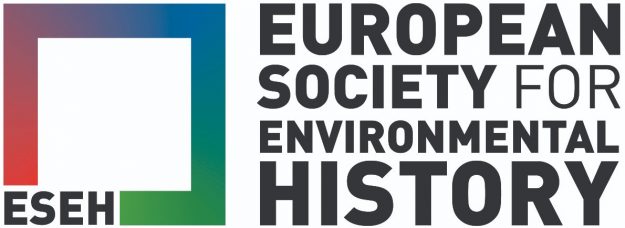

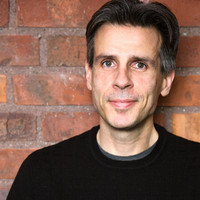
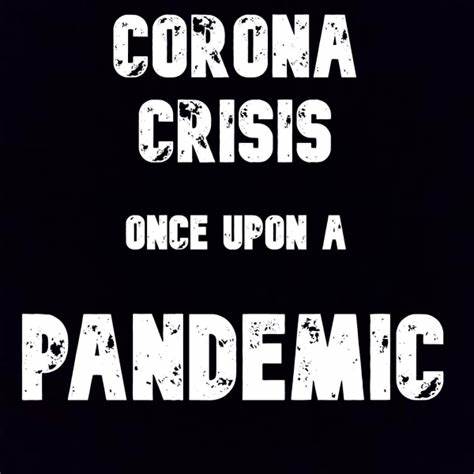

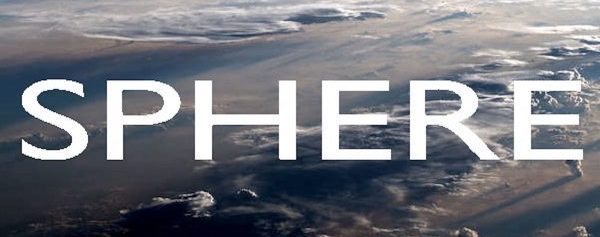


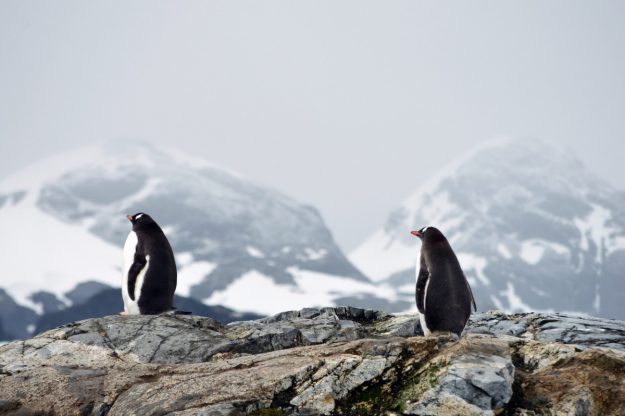
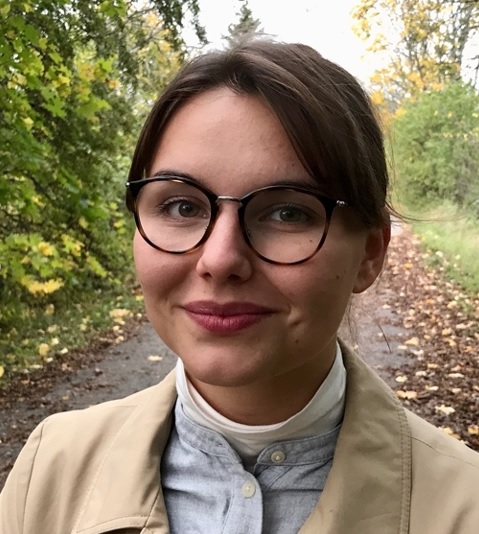 degree in The History of Science and Ideas at Uppsala University in June 2020. Previous to my Master’s I did a dual Bachelor’s degree in Media History and The History of Science and Ideas at Lund University. I have also studied archival science and was an exchange student at Utrecht University in 2019. My broader research interests relate to the history of humanities, history of bureaucracy, university history and the history of computing. Besides my studies, I have a far-reaching interest in research- and education policy.
degree in The History of Science and Ideas at Uppsala University in June 2020. Previous to my Master’s I did a dual Bachelor’s degree in Media History and The History of Science and Ideas at Lund University. I have also studied archival science and was an exchange student at Utrecht University in 2019. My broader research interests relate to the history of humanities, history of bureaucracy, university history and the history of computing. Besides my studies, I have a far-reaching interest in research- and education policy. I hope I am not taking advantage of my position as the president of our society to write what might seem to be a quite personal text. Feminist practices and scholarship have taught me that the personal is never only personal but also political. In my own work I have always blended – someone less sympathetic would say mixed up – the personal, the scientific and the political, convinced, as I am, that we know the world not only through concepts and words but also through emotions and political passions. So, please bear with me in my perhaps inappropriate trespassing of those various realms.
I hope I am not taking advantage of my position as the president of our society to write what might seem to be a quite personal text. Feminist practices and scholarship have taught me that the personal is never only personal but also political. In my own work I have always blended – someone less sympathetic would say mixed up – the personal, the scientific and the political, convinced, as I am, that we know the world not only through concepts and words but also through emotions and political passions. So, please bear with me in my perhaps inappropriate trespassing of those various realms.


